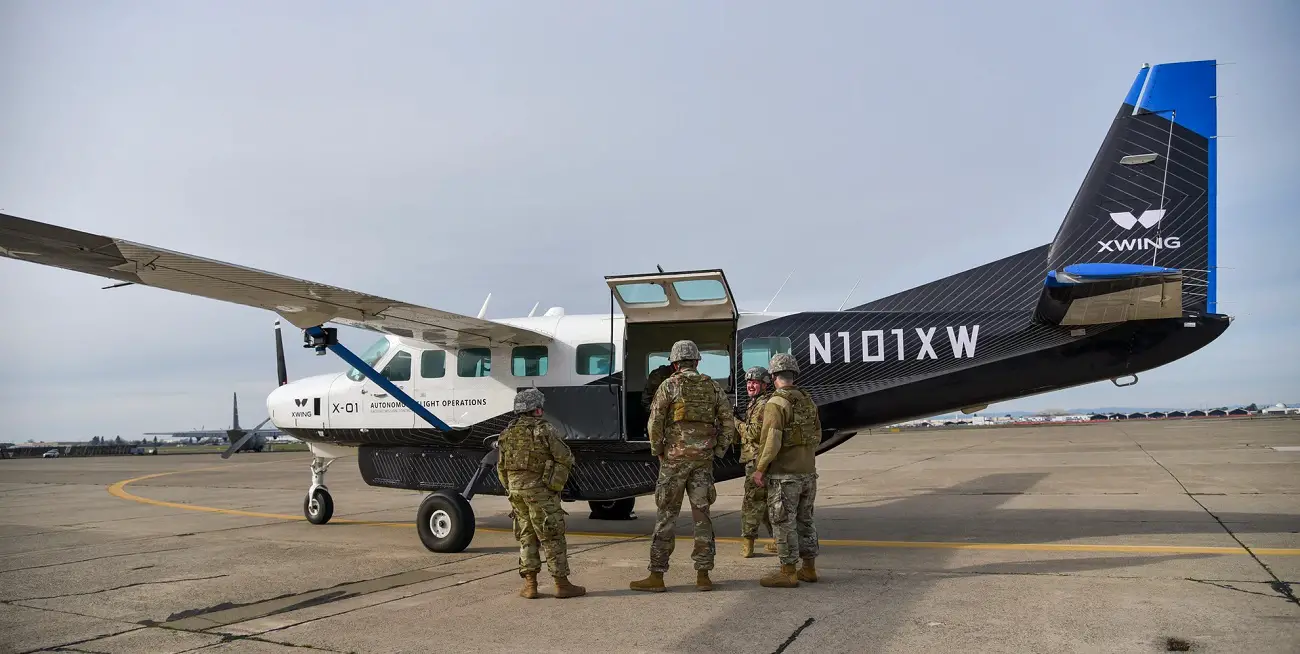Xwing, the leading supplier of modular autonomy technology for aviation, has announced the successful completion of its recent participation in AGILE FLAG 24-1. The company transported mission-critical cargo with daily autonomous missions throughout the week-long exercise, accumulating over 2,800 autonomous flight miles to military bases and civilian airports, including March Air Reserve Base, Vandenberg Space Force Base, Sacramento McClellan Airport, Meadows Field Airport, and Fresno Yosemite International Airport. AGILE FLAG 24-1 was a Total Force exercise, which ran from January 22 – February 4, 2024 bringing together Air Combat Command (ACC) and Air Mobility Command (AMC) at military bases and public airports throughout California centered on Agile Combat Employment. After rigorous safety and technical assessments of the Xwing aircraft and operations, the Air Force awarded Xwing a Military Flight Release (MFR) to operate their autonomous aircraft for Public Aircraft Operations (PAO). These approvals allowed Xwing to deliver official Air Force cargo with autonomous taxis, takeoffs, and landings at military and civilian installations.
“Achieving an Air Force Military Flight Release certification is a momentous milestone removing the barrier to transition and unlocking key testing and experimentation opportunities. AGILE FLAG was an opportunity to showcase autonomous light cargo logistics and demonstrate operational relevance and increased technical readiness,” said Kate Brown, AFWERX Autonomy Prime deputy branch chief.
“We saw first-hand during AGILE FLAG that the use of Xwing’s autonomous aircraft eliminated the need to fly a larger aircraft such as a C-130 to deliver critical cargo to the warfighter on short notice. When you fly missions autonomously, you operate with the speed and efficiency required for dispersed ACE operations, delivering cargo and personnel at a much lower cost and risk,” said Maxime Gariel, President, CTO and co-founder of Xwing.
“Our technology has proven effective over hundreds of successful autonomous flights. This exercise gave us the opportunity to stretch the operational envelope into new environments, day and night, with real-world cargo proving that we can effectively complete Air Force mission objectives,” said Craig Milliard, Xwing Flight Test Manager, who remotely supervised the flights from a ground control station at Sacramento McClellan Airport.

A core component of ACE operations is the ability to flexibly execute dispersed logistics to unsurveyed locations with little or no ground support. Air Force operational leaders assigned Xwing cargo missions based on real-time logistics needs of the exercise. This included delivery of sensitive weather equipment and other critical cargo to various locations throughout the week-long event, and demonstrated an increase in the speed to deliver critical parts and reduced the number of requests for traditional heavy lift aircraft, the two key enablers that autonomous aircraft offer operational commanders. The exercise required Xwing to navigate through the busy Los Angeles basin, where the autonomous aircraft successfully integrated with heavy traffic at March ARB and complied with Air Traffic Control (ATC) instructions. Xwing successfully illustrated the role of autonomy as a force multiplier and risk mitigator to rapidly disperse contingency operations into unknown, contested, degraded or operationally limited (CDO) environments. Xwing’s participation was part of a newly awarded Phase III Small Business Innovation Research (SBIR) contract. Details of Xwing’s first Agile Flag mission can be found via AFRL. This is a continuation of Xwing’s partnership with AFWERX which included a Phase II contract that began in May of 2023.
Xwing is the industry’s leading supplier of modular autonomy technology for aviation. Our adaptable systems are designed to seamlessly integrate with a wide range of aircraft, providing the ability to safely operate ground-supervised, uncrewed aircraft in any airspace. Xwing’s autonomous flight system brings aviation into a new autonomous era. The company collaborate with cutting-edge aircraft manufacturers to integrate autonomous flight capabilities into their product offerings. This empowers operators to tackle missions that would otherwise be unattainable, impractical, or cost-prohibitive with traditional piloted operations. From logistics to aerial firefighting, Xwing’s certifiable solution provides safety and flexibility, unlocking new possibilities. As the first, and only company, certifying a large, uncrewed aircraft system (UAS) with the FAA, Xwing is at the forefront of enabling autonomous operations throughout all flight stages, without the need for a pilot onboard. Our use of AI is targeted to specific applications that maximize the safety and needed redundancy of our system. Founded in 2016, Xwing is based in Northern California with offices in San Francisco and Concord, CA.
The Air Force Research Laboratory is the primary scientific research and development center for the Department of the Air Force. AFRL plays an integral role in leading the discovery, development, and integration of affordable warfighting technologies for our air, space and cyberspace force. With a workforce of more than 12,500 across nine technology areas and 40 other operations across the globe, AFRL provides a diverse portfolio of science and technology ranging from fundamental to advanced research and technology development.
The Air Force Research Laboratory is the primary scientific research and development center for the Department of the Air Force. AFRL plays an integral role in leading the discovery, development, and integration of affordable warfighting technologies for our air, space and cyberspace force. With a workforce of more than 12,500 across nine technology areas and 40 other operations across the globe, AFRL provides a diverse portfolio of science and technology ranging from fundamental to advanced research and technology development.
















